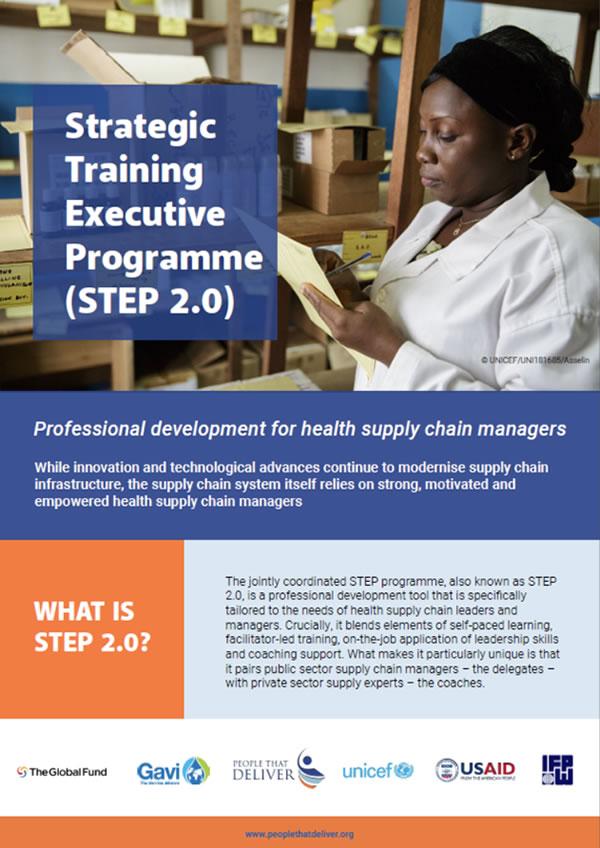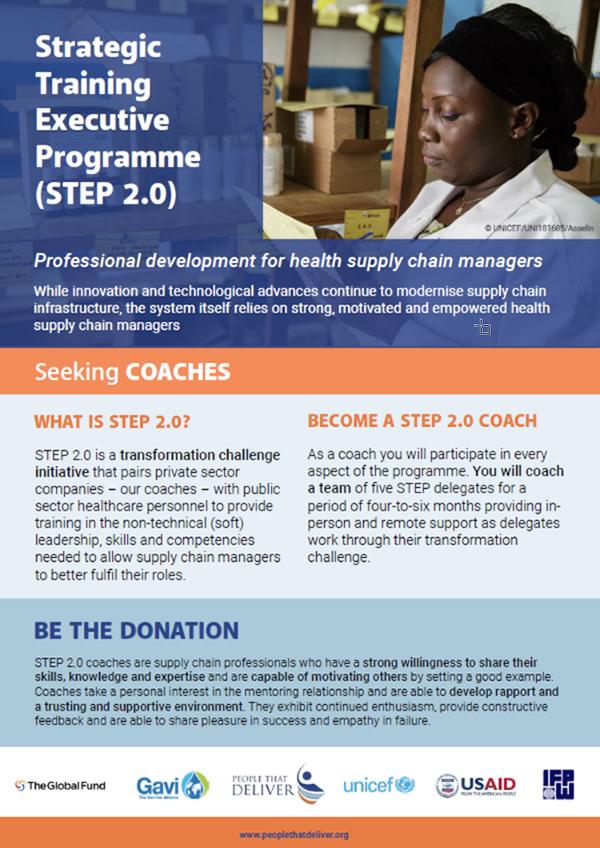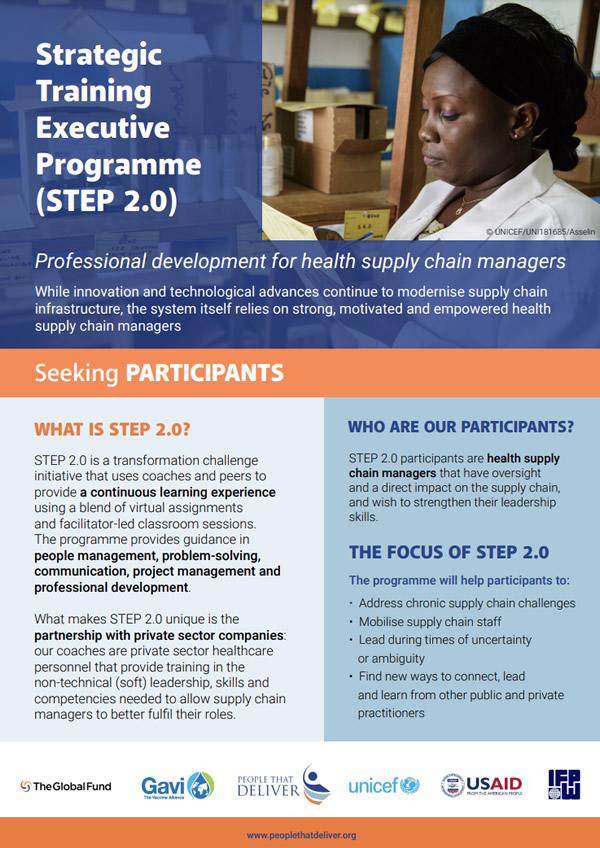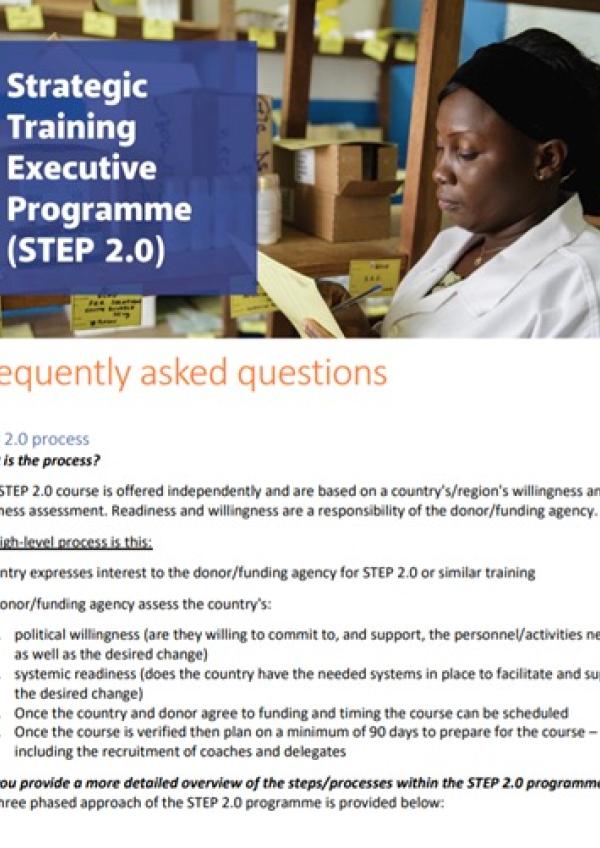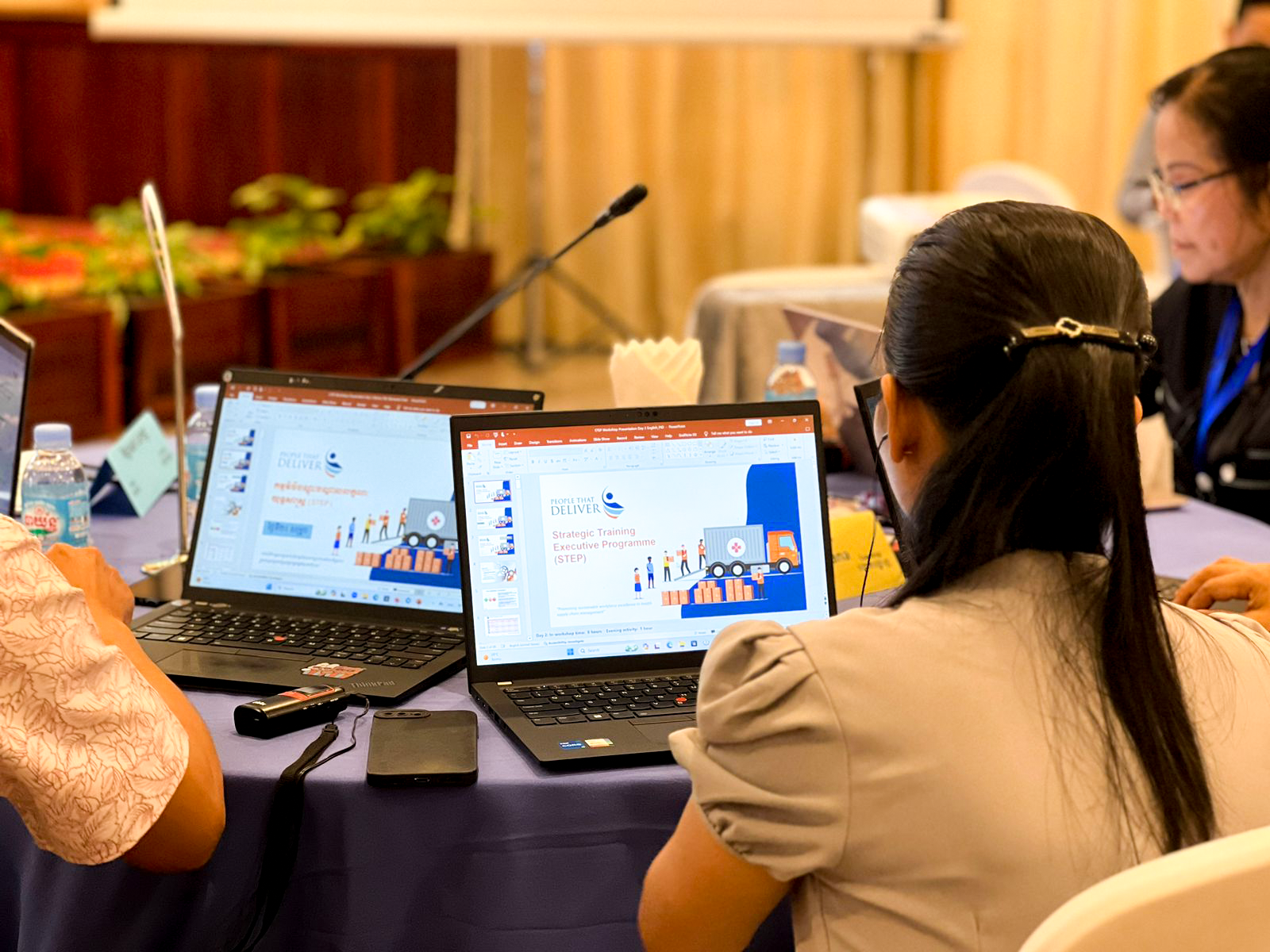
Why do we need STEP 2.0?
The availability of health commodities is often constrained by limited supply chain management (SCM) leadership and failure to address SC challenges. STEP 2.0 addresses these.
The STEP 2.0 programme is managed by the International Federation of Pharmaceutical Wholesalers.
STEP has brought, and continues to bring, great value to supply chain professionals and country health systems. The programme is designed to be resilient. To remain relevant, it must pivot from leadership development to leveraging the programme’s change management processes to contribute to, and enable, system optimisation and integration through continuous operational improvement approaches. See here “From STEP 2.0 to NEXT STEP: Strategy and Concept Note (January 2026)”.
The objectives of STEP 2.0
- Develop the leadership capabilities of public-sector supply chain leaders so that the country’s health supply chain can provide its population with the health commodities it needs
- Work with leaders to provide solutions to real supply chain problems that have defied resolution in the past
- Lead workplace improvements by focusing on your transformation challenge
- Complement national supply chain strategies by maximising the effectiveness of the health supply chain workforce
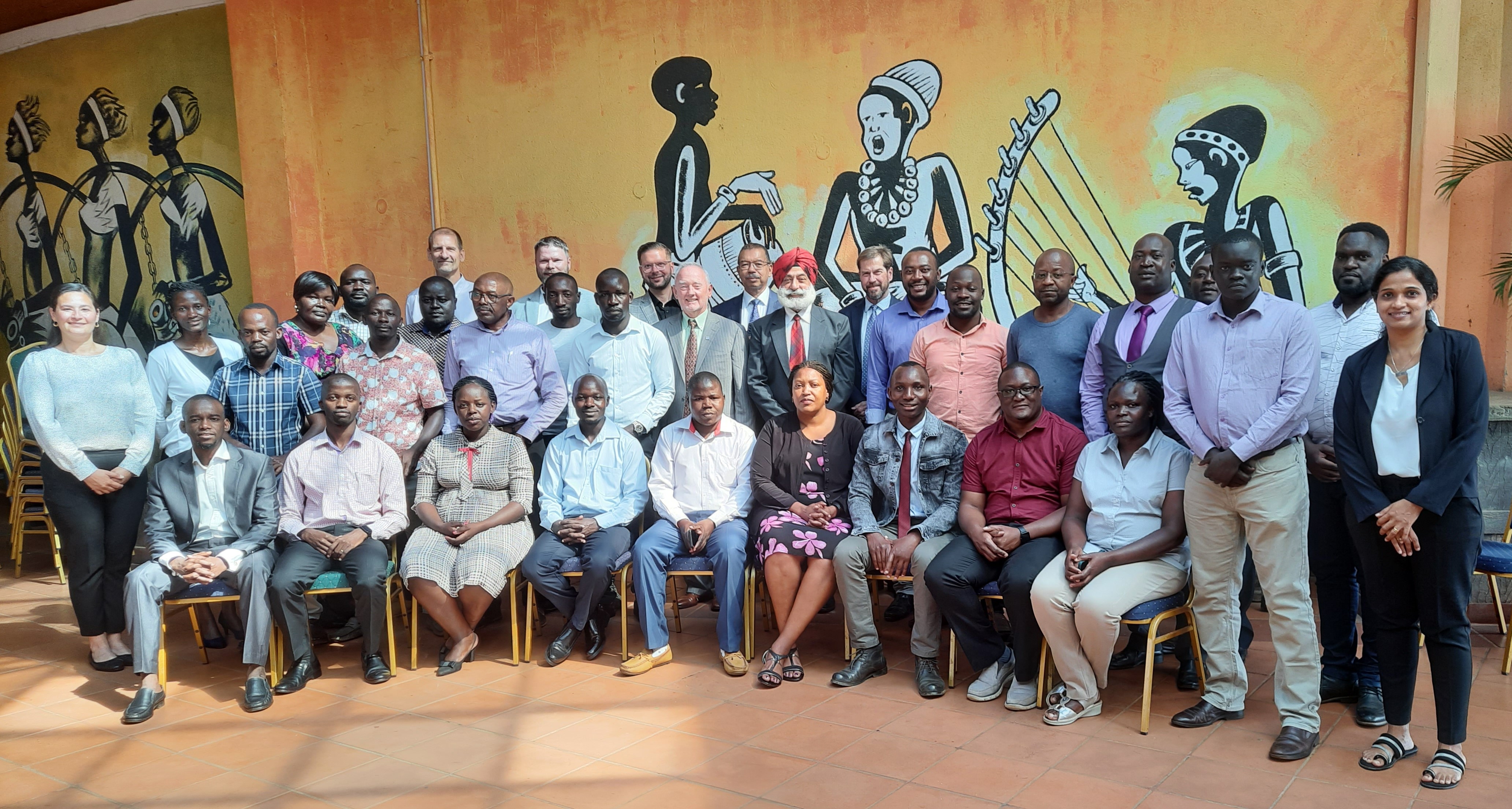
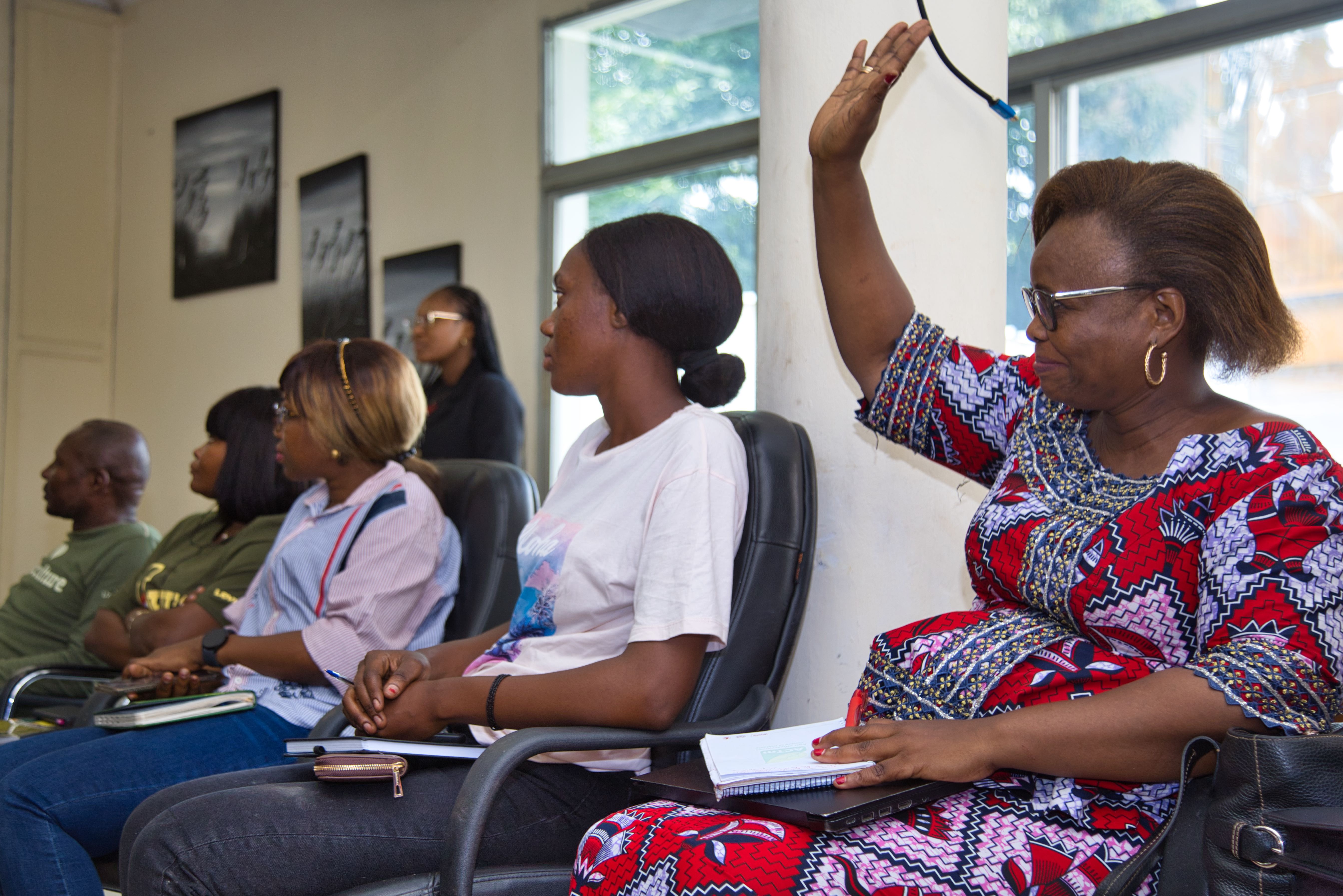
STEP 2.0 tackles organisational challenges
Your transformation challenge is at the centre of STEP 2.0. This is a structured, step-by-step process in which participants identify a supply chain obstacle their organisation is facing and, along with their assigned private sector coach, develop and implement a plan to lead their team through the challenge.
Results to date
A 2024 paper published in the Global Health Science and Practice Journal demonstrated that optimising the leadership competencies of SCM leaders in low- and middle-income countries (LMICs) contributes to enhanced commodity and medicine availability with improved health outcomes.
STEP 2.0 has been shown to lead to a 20 percent improvement (on average) in individual competencies linked with leading, shaping, planning, acting and evaluating.
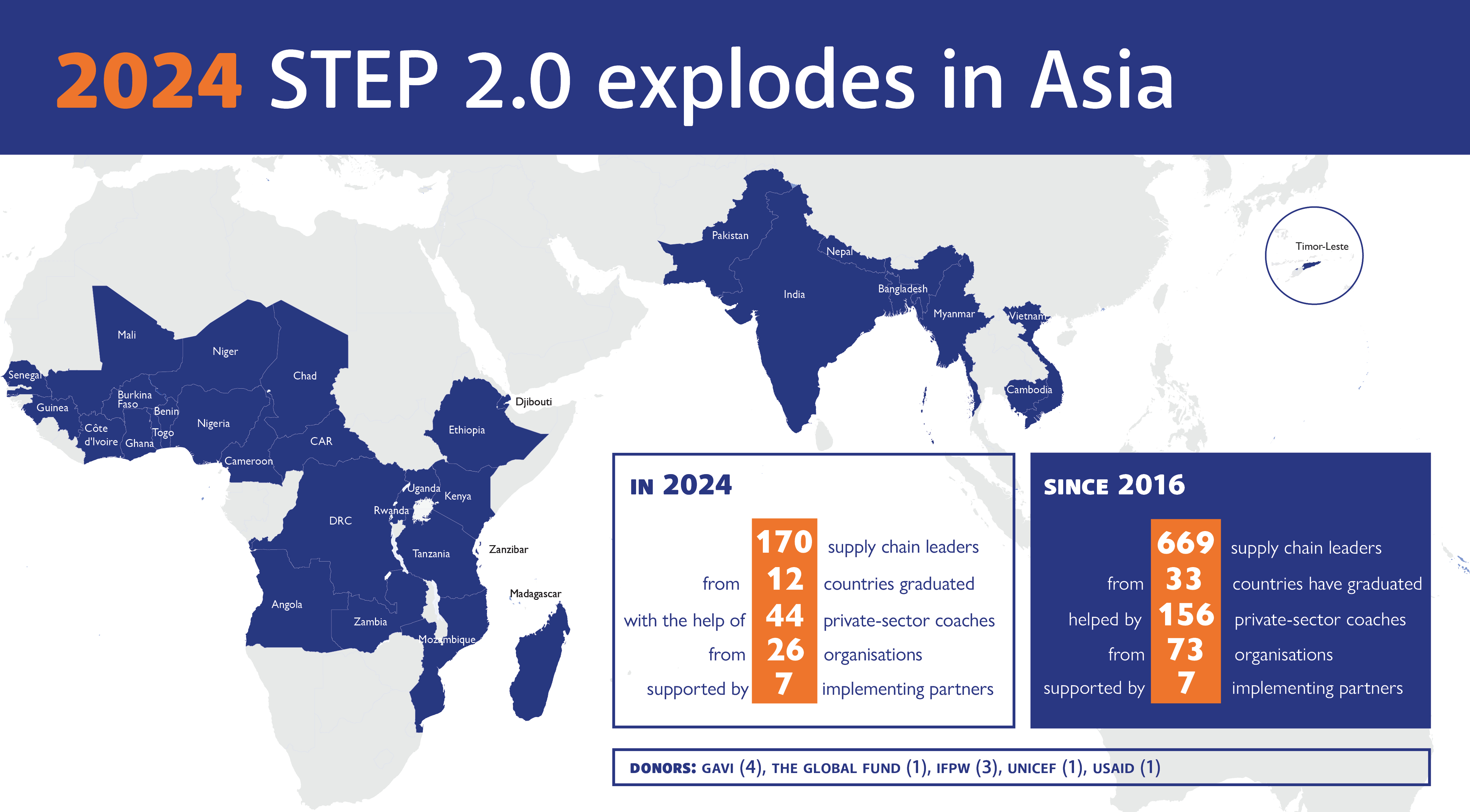

Who is STEP 2.0 for?
STEP 2.0 has been designed for health supply chain managers and leaders, many of whom face the same challenges, including the need to mobilise supply chain staff and the need to lead during times of uncertainty or ambiguity. STEP 2.0 provides an opportunity for participants to connect, lead and learn from other public and private practitioners.
Read about how participants benefitted from the STEP 2.0 programme in 2024
How to take part in STEP 2.0
STEP 2.0 is led by organisations. This means that if you wish to become a STEP 2.0 participant, funding must first be granted by your organisation. As the hub for STEP 2.0, PtD provides support to organisations wishing to implement STEP, but the programme itself is not implemented by PtD. Once you have secured funding we can help you plan it.
There are two common routes to becoming a STEP 2.0 participant:
- Individuals receive funding from their organisation and, assisted by PtD, are directed to a programme near them.
- Groups of individuals or organisations receive funding and PtD supports them to find a provider for STEP 2.0. In this case, STEP 2.0 comes to them.
Use the STEP 2.0 checklist to determine your readiness for the STEP 2.0 programme.
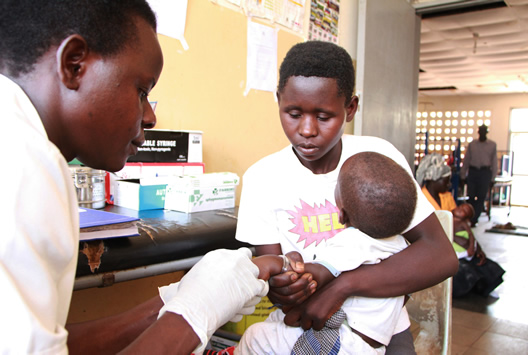
How your organisation can support STEP 2.0
The STEP 2.0 programme needs volunteer coaches: private sector supply chain experts who have a strong willingness to share their skills, experience and knowledge, and are capable of guiding participants through their supply chain challenges.
Your company could help by:
- Donating a STEP 2.0 coach and their associated expenses (travel, accommodation and meals)
- Supporting STEP 2.0 financially so that supply chain managers can boost their leadership and change management skills.


